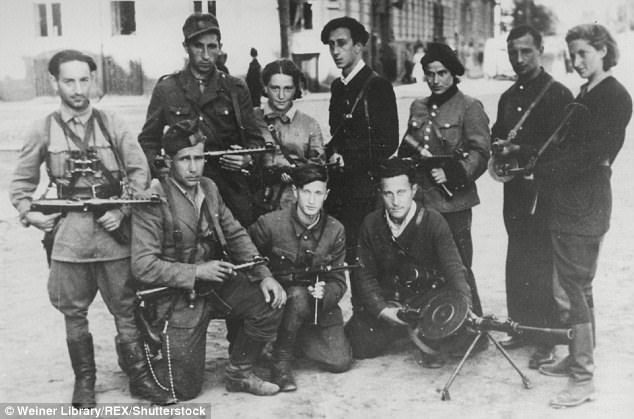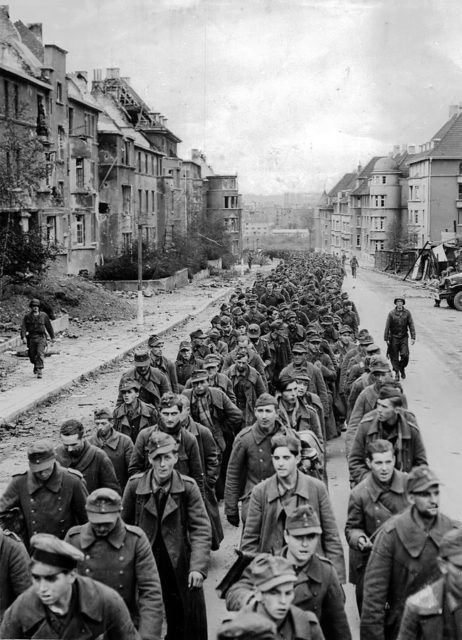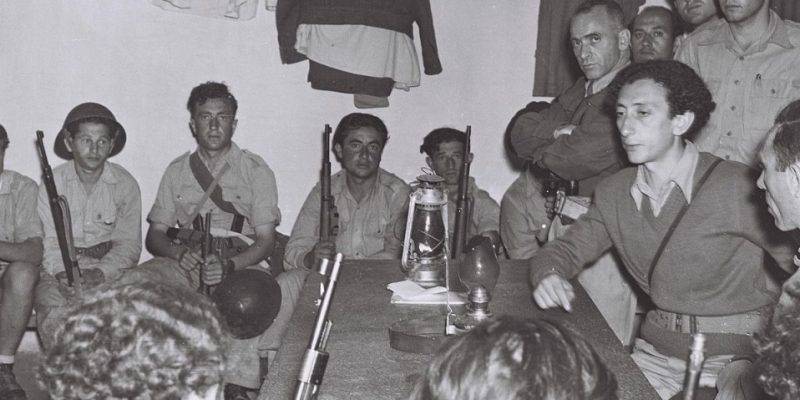“What is Zionism? Zionism is the Jews taking their fate into their own hands and not letting the others dictate our fate,” so said Dina Porat, the chief historian at Israel’s Yad Vashem memorial, with regard to a recently uncovered plot by the Jewish group “Avengers.”
The remarkable tale, released by The Associated Press, was uncovered in a recently declassified US military report and reveals how a group of Jewish Holocaust survivors tried to take revenge on the Nazis by poisoning over 2,000 Germans incarcerated in a prisoner of war camp.
The last thing on most Jewish minds at the end of WWII was revenge; it was simply to try and rebuild their shattered lives. The family were dead or scattered to the four corners of the earth and trying to get back on their feet was what occupied the minds of many.
Thoughts of revenge were, however, foremost in the minds of 50 or so young men and women, most of whom had been members of the resistance. This group, who called themselves the Avengers, were bent on ensuring that as many Nazis as possible would pay for the crimes committed against their people.

While the Nuremberg trials were designed to prosecute the high-ranking members of the Nazi party for their part in the crimes against humanity perpetrated against the Jewish nation, many Jewish people felt betrayed and had a deep sense of justice denied as so many Nazis that had actively been involved in the slaughter of Jewish people escaped punishment.
Joseph Harmatz (91), whose Avenger code name was Julek, is one of the last surviving members of the Avengers, and he is today completely unrepentant as regards the plots to kill Nazis.
Their initial plan was for the group to poison the water supply at Nuremberg. This plan, devised by the Israeli poet, Abba Kovner, was viewed with serious misgivings by many as it was felt that the deaths of many innocent Germans would not be tolerated by the rest of the world and that it would move sympathy away from the Jewish cause. Kovner drew the attention of the British authorities, and he was forced to discard the poison into the sea before he was arrested.
Attention then turned to the prisoner of war camp Stalag 13 at Langwasser, near Nuremberg where the Americans were holding thousands of SS soldiers. Members of the Avengers managed to find jobs at a bakery that supplied bread to the camp, and they made plans to add arsenic to the bread delivered to the camp.
-

German POW, 1944.
Kovner provided the arsenic; Harmatz oversaw the plan from outside the bakery and three members of the Avengers mixed the arsenic with glue and water and used the mixture to coat 3,000 loaves of bread. The adulterated bread was then delivered to the camp with the aim of poisoning 12,000 SS men but to the chagrin of the group the soldiers became very ill, but no-one died from the poisoning.
After the failure of the attack Harmatz, Distal and the other members of the group had to flee and at the Czechoslovakian border, they were met by an Auschwitz survivor, Yehuda Maimon, who had bribed border guards to allow them to escape. They then fled through Italy before settling permanently in Israel.
The declassified files showed that the amount of arsenic used should have resulted in the deaths of the SS soldiers and to this day no-one is sure why there were no deaths. According to AP, who requested the declassified files through Freedom of Information Act, one of the memoranda, dated 1946, stated, ““three empty hot water bottles and a burlap bag containing four full hot water bottles. An analysis of the contents revealed that they contained enough arsenic mixed with glue and water to kill approximately 60,000 persons.”

It went on to say that laboratory tests showed “arsenic on the bottom, top, and sides of the bread.” Doctors that treated the inmates of Stalag 13 reported that “the SS men exhibited symptoms similar to cholera and included vomiting, diarrhoea and skin rashes.” The report stated that each loaf of bread contained 0.2 grams of arsenic which should have been fatal to anyone eating it.
In 1999 Harmatz and Leipke Distal, who worked undercover at the bakery, took part in a television documentary about the operation that was aired in 1999. Under German law, prosecutors at Nuremberg were placed in the invidious position of having to investigate Holocaust survivors trying to murder Nazis. Eventually, the investigation was concluded with no prosecutions being undertaken due to “extraordinary circumstances.”
Dina Porat, the chief historian at Israel’s Yad Vashem memorial put the entire attack into perspective saying, “The tragedy was about to be forgotten, and if you don’t punish for one crime, you will get another,” she explained. “This is what was driving them, not only justice but a warning, a warning to the world that you cannot hurt Jews in such a manner and get away with it.”
Harmatz feels no remorse for the attack and feels it was his duty to do something before settling in Israel, “It was imperative to form this group. If I am proud of something it is that I belonged to this group. Heaven forbid if after the war we had just gone back to the routine without thinking about paying those bastards back. It would have been awful not to respond to those animals.”
